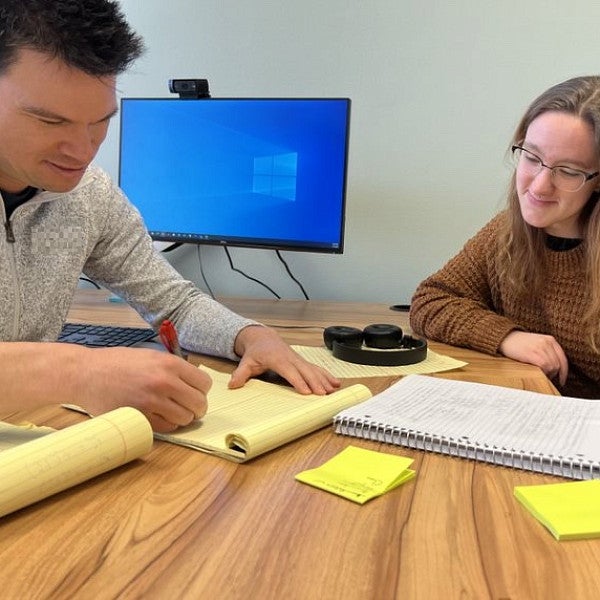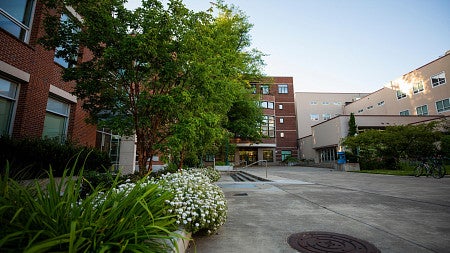Economics is a comprehensive social science discipline that teaches students to critically analyze the world around them, applying economics theories and mathematical approaches to almost any societal question. It’s no surprise, then, that the National Association of Colleges and Employers (NACE) reports that economics majors earn among the highest starting salaries of any major. Economics majors get jobs in government, private industry, and academia. They outscore every other major on the LSAT and place 3rd on the MBA entrance exams. Economics majors emerge from our program with the skills to examine the development of our communities and societies.
Read about the Indigenous history of our local land.

Why I Am an Economist
“Economics challenges students to think differently about problems and learn new tools to solve them. One of the most rewarding parts of being a professor is seeing my students grow over the term. But learning doesn't stop in the classroom. My goal is to help transform my students' interest in economics into successful, fulfilling careers. I am the faculty adviser for Economics Club, a student-led club that allows students to explore economics research, careers, and other topics that interest them. I also supervise independent student research. Some of my recent advisees have gotten research positions at the University of Chicago, Yale and the Federal Reserve Banks of Chicago and San Francisco.”
—Jon Davis, assistant professor of economics
What You Can Do with a Degree in Economics
Career opportunities abound for economics majors, and our graduates have found positions in both the public and private sectors. A degree in economics is also an excellent springboard for graduate studies across a wide variety of fields, including law, business, and international relations, among others. Potential careers include:
- Research firms and think tanks
- Private corporations in a variety of industries
- Federal, state, and local government agencies
- Nonprofits and non-governmental organizations (NGOs)
- Trade associations
- Labor associations and unions
- International organizations (e.g., the World Bank, the United Nations)
- Banks and other financial service institutions
- Insurance firms
- Colleges and universities
- Law
- Tribal careers
Our Degree Programs
Economics is more than just money and finance! Our classes cover topics such as health, labor, and environmental economics, big data, international trade, and human behavior.
A highly customizable major, we work with students to find the path for you — whether that be our Accelerated Master’s Program, PhD preparation, or applied skills in data programming, we can pair classes to individual student interests.

Learn from Experts in the Field
The UO Department of Economics is distinguished among others in the College of Arts and Sciences with four endowed chairs/professorships. In addition to pursuing frontier research, the department’s faculty strives for excellence in the classroom. Three have received the Ersted Award, a university-wide award for distinguished teaching. In the most-recent NRC rankings of economics departments, which rate the quality of a department’s faculty and doctoral program, the department ranked 16th among all public institutions in the nation.

Get Real-world Experience
Students in our department have multiple opportunities to extend their education outside of the classroom. From studying economics abroad to available internships, explore the ways you can make the most out of your time in the Department of Economics.
Scholarships and Funding
The Department of Economics awards multiple departmental scholarships annually that are available to undergraduate students. We also offer a number of specific prizes at graduation for particularly outstanding students.
Academic Support
As part of Academic Support Unit #2 (ASU2), Economics has a dedicated team of undergraduate and graduate specialists available to help with any issues related to academics in the department. Along with the Directors of Graduate and Undergraduate Studies, we provide advising to all majors and minors. Students are also encouraged to seek out individualized mentorship from our faculty, who regularly work one-on-one with students on career development and research projects outside the traditional classroom.




